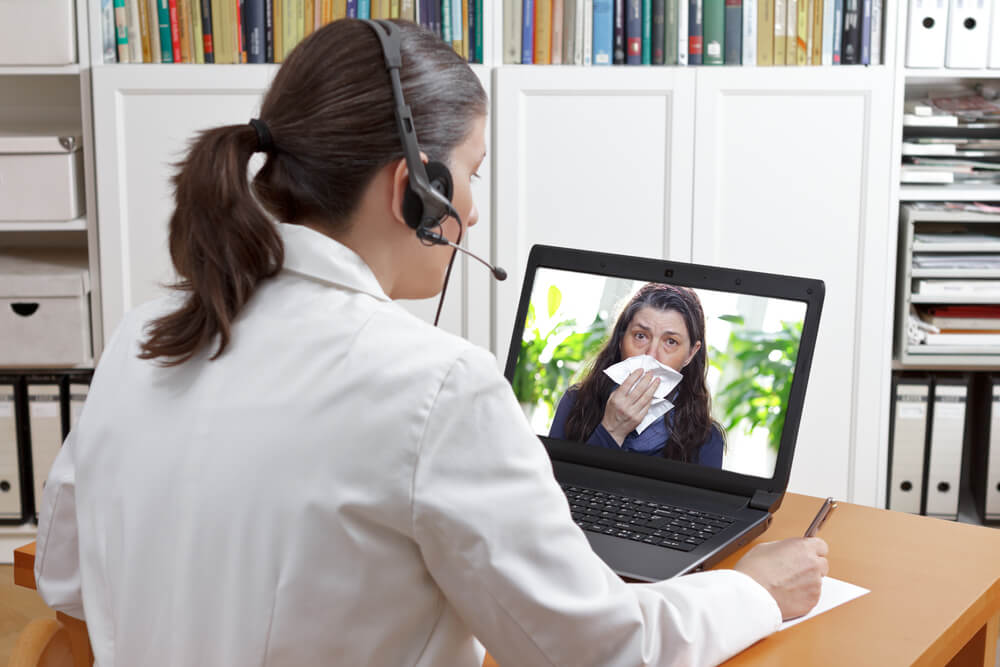Telemedicine is an overarching technology, which goes beyond benefitting primary care doctors alone to serve several benefits for specialty practices.
Telemedicine is gaining increasing popularity in the U.S. healthcare industry, and for all the right reasons. It has evolved as an effective and convenient care delivery model that not only increases the efficiency of medical practices but also enhances their revenues. While we might associate primary care as the chief driver for telemedicine growth, the fact is that remote visits have equally compelling benefits for specialties.
The use of high definition audio and video patient encounters allow specialty practices to see and treat patients across geographical barriers, and without the patients having to travel long distances frequently. Improving the practice’s productivity, telemedicine also allows each specialist to see more patients in a given day. Further, it takes care of the growing shortage of specialty providers.
Following are nine of the most commonly cited specialties that have benefitted from deploying telemedicine to see and treat their patients:
Gastroenterology
Diseases such as ulcerative colitis, hepatitis C, and Crohn’s disease often require long-term monitoring and care, as well as managing multiple medications. Telemedicine allows gastroenterologists to effectively engage with the patients for dietary counseling, reviewing diagnostic test results, and ensuring medication adherence.
Cardiology
Patients suffering from heart-related diseases fall under the realms of chronic disease. Hence, such patients who suffer from cardiovascular disease or congenital health defects generically require ongoing care and precise treatment plans. Televisits reduce the frequency of their visits to the cardiologist’s office and help them comply with follow-up instructions.
Read More: Telemedicine: The Most Profitable Business in America Today
Dermatology
High definition video visits can significantly facilitate dermatologists in diagnosis and treating a variety of skin conditions remotely. Routine skin care assessments are a simple task and can effectively be conducted over televisits. Even more urgent triage skincare needs can be addressed through telemedicine.
Infectious Disease
Telemedicine is being used to monitor symptom progression for infectious diseases. Medication management and responding to unexpected side effects of medications in such patients is a significant concern for providers. And remote visits work well to accommodate both the patient and the provider in this respect.
Endocrinology
Endocrinology also falls under the domain of chronic disease management. Endocrinologists are increasingly benefitting from remote visits to manage patients with chronic conditions such as diabetes and thyroid diseases. Simple video visits can be beneficial in handling adjustments to several hormones and hypertension treatments.
Oncology & Hematology
Oncologists are also leveraging video visits to monitor their patients, control medications, and administer treatment plans for patients with chronic diseases such as cancer and iron deficiencies. Telemedicine allows them to virtually provide valuable information about managing such conditions while delivering effective care plans.
Obstetrics and Gynecology
Telemedicine offers convenient care delivery for obstetricians and gynecologists. From family planning to postpartum depression, virtual visits play an important role in patient counseling. Moreover, post-op patients can be continuously monitored through virtual visits, which is a significant benefit for new mothers.
Read More: Improving Opioid Addiction Treatment with Telemedicine
Psychiatry
Telecommunications technology has significantly eased the process of psychiatric diagnosis and treatment. A remote connection allows the psychiatrists to see patients with all mental and behavioral health issues, without having to call them for an in-office visit. Virtual visits help break the most glaring concern of such patients, that is privacy, and aids in delivering quality care interventions.
Pulmonology
Patients with pulmonary illnesses such as bronchitis, asthma, and COPD are great candidates for telehealth. Video consultations make it incredibly easy for them to stay engaged in self-care while seeking care in the comfort of their homes.
The list above is not inclusive, but rather illustrates the numerous ways in which patients and providers can benefit from telemedicine across the healthcare landscape. Telemedicine is an overarching technology that goes beyond helping primary care doctors alone to serve several benefits for specialty practices.
